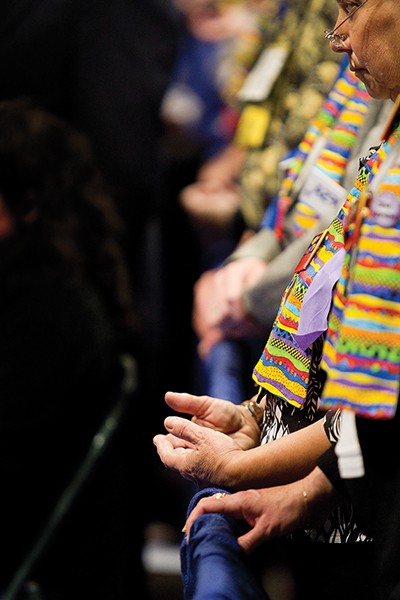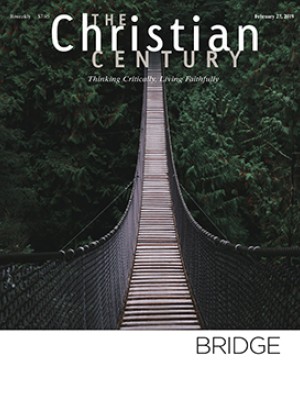United Methodist assembly meets to make a decision on sexuality and the church
There are multiple options on the table at the special meeting of the top legislative body for the 12.6-million-member global denomination.

Multiple options are on the table for the United Methodist Church at a special session of its legislative assembly that meets Saturday–Tuesday to clarify whether the marriages and ordinations of LGBTQ people will be recognized by the denomination. At the special meeting, called to focus exclusively on the questions around sexuality, 864 delegates—half clergy, half laity—will meet for the top legislative body of the 12.6-million-member global denomination.
The assembly will consider three plans contained in a report from the church’s Commission on a Way Forward and other proposals. The commission’s report includes the following three plans:
1. The Connectional Conference Plan is the most thorough—and the hardest to implement, requiring several years of actions and additional votes. It would replace the five U.S. regional bodies (each of which elects its own bishops) with three connectional conferences formed according to a stance on sexuality. Regional bodies outside the United States could join one of those three connectional conferences or start their own connectional conference, up to a global total of eight. A smaller body in any region—called an annual conference—that disagrees with the larger conference decision could join a different connectional conference.
Read our latest issue or browse back issues.
2. The One Church Plan would change the Book of Discipline to end the prohibition on same-sex weddings performed by United Methodist clergy or held in UM churches. It would change the definition of marriage in the book from “between a man and a woman” to “traditionally understood as a union of one man and one woman.” Clergy would be free to choose whether or not they wanted to officiate at a wedding, and conferences would not be required to ordain or consecrate LGBTQ people as ministers or bishops. A majority of bishops support this plan.
3. The Traditional Plan would affirm the current language in the denomination’s Book of Discipline and seek to strengthen enforcement of it.
In addition to all of these is the Simple Plan, which is not in the commission’s report but could nevertheless be adopted by the assembly. It eliminates all language limiting the role of LGBTQ people in the church from the denomination’s Book of Discipline—but does not require constitutional amendments or restructuring. According to Alex da Silva Souto, an author of the plan who will be a delegate from the New York Conference to the special meeting, “it allows for local congregations and conferences to continue with their own process of discernment without forcing them at a particular pace or a particular direction.”
Also not in the commission’s report is a Modified Traditional Plan, which augments what’s in the Traditional Plan, adding a new disciplinary body to hold bishops and conferences accountable to churchwide rules. It would also give congregations that want to leave the denomination assistance, including financial support.
The Wesleyan Covenant Association, an unofficial advocacy group for conservative United Methodists, began publicizing its planned responses weeks beforehand in anticipation of a course of action being chosen other than the Modified Traditional Plan it supports. The association set aside two days in April for a Convening Conference that would potentially start a new denomination with congregations waiting to “withdraw in concert with one another,” as Paul Lawler, one WCA leader, put it, rather than leaving immediately after the February 23–26 meeting. —United Methodist News Service




